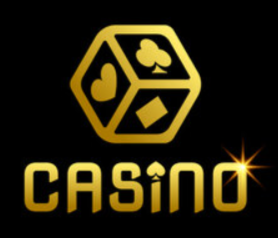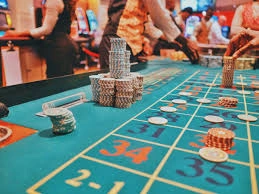When players log into top platforms such as scratchplay.gr, they’re often attracted by the promise of inexpensive spins, seemingly harmless low-cost wagers, and the appealing concept of “cheap” entertainment. What many players fail to realize is the profound psychological mechanics behind these small bets. Far from saving money, low-cost spins often lead gamblers to spend significantly more over time. This article will unravel the intriguing psychology behind small bets, explaining why inexpensive spins are deceptively effective at driving overall higher expenditure.
Why Small Bets Feel Safe: The Illusion of Control
Small bets attract players by creating a sense of security. The minimal risk associated with inexpensive wagers provides a psychological safety net, making it easy for gamblers to rationalize continuous play.
Perceived Affordability
Players often perceive small bets as affordable and inconsequential. A spin costing just a few cents or euros feels financially insignificant, especially compared to larger, riskier bets. This perceived affordability encourages repetitive betting, cumulatively leading to larger overall expenditures.
The Illusion of Harmlessness
Low-cost spins appear harmless, and psychologically, players minimize the importance of small losses. When each bet costs only a small amount, players underestimate the cumulative impact of their spending, a critical factor in sustained and higher gambling expenditures.
Dopamine and the Cycle of Reinforcement
The psychology of small bets revolves significantly around dopamine release, the neurotransmitter associated with pleasure, motivation, and reward anticipation.
Frequent Rewards and Dopamine Release
Small bets enable frequent spins and more regular wins, even if minor. Each winning event triggers dopamine release, reinforcing the gambling behavior. Frequent but small rewards strengthen the behavioral loop, creating a habit of continued play.
Near-Miss Phenomenon
Casinos leverage the psychology of near-misses—situations where players almost win—to keep gamblers engaged. Small bets increase the frequency of near-misses, heightening anticipation and fueling the desire to continue playing. This continuous cycle of near-misses reinforces addictive gambling patterns, subtly increasing overall spending.
Anchoring Effect and Small Bets
The anchoring effect, a cognitive bias where individuals rely heavily on initial information to guide subsequent decisions, plays a critical role in small-bet psychology.
Establishing a Spending Baseline
Initial small bets establish a low-cost baseline, anchoring gamblers’ expectations. Over time, as gamblers become desensitized to these small bets, they feel comfortable incrementally increasing their wagers, thus escalating their overall spending.
Gradual Increase in Bets
Players gradually increase their stakes from initially small bets due to psychological anchoring. What begins as minor entertainment quickly escalates into higher, riskier wagers. This gradual increase often goes unnoticed until significant spending occurs.
Mental Accounting and the Danger of Compartmentalization
Another critical psychological element in small-bet gambling is mental accounting—the process by which individuals categorize and treat money differently based on its origin, intended use, or perceived value.
Separation of “Entertainment” Budget
Players often mentally separate gambling expenses from their overall financial management, categorizing small bets as “entertainment” spending. This compartmentalization prevents gamblers from recognizing the cumulative financial implications of their gambling habits.
Ignoring Total Costs
The frequent and seemingly insignificant nature of small bets allows players to ignore the total spending. Gamblers tend to track losses inaccurately, often significantly underestimating their true expenditure, resulting in overspending without awareness.
The Power of Habit Formation
Small bets effectively exploit human habits, embedding gambling behaviors deeply into daily routines.
Habitual Gambling Behavior
Cheap spins facilitate regular engagement, easily integrating into daily habits. Gambling sessions become habitual behaviors, such as daily coffee or routine browsing on smartphones, significantly increasing the risk of long-term spending.
Cue-Routine-Reward Cycle
Habit formation involves cues triggering gambling behavior, routines (placing small bets), and rewards (frequent minor wins). This cycle entrenches gambling as an automatic behavior, significantly increasing overall expenditures and making it challenging to stop.
Social Proof and Small Bet Popularity
Social proof, the psychological tendency to emulate the behaviors of others, further amplifies the effectiveness of small bets.
Peer Influence
Seeing friends, acquaintances, or online communities engaging frequently in small bets encourages others to participate similarly. Social proof validates small bets as acceptable and normal behavior, further encouraging sustained gambling habits.
Community and Shared Experiences
Platforms effectively leverage community elements, encouraging shared experiences of small bets and winnings. Players feel socially connected, reinforcing frequent engagement and gradually increasing their spending through peer-driven excitement and validation.
Cognitive Biases and Misperceptions
Several cognitive biases underpin the effectiveness of small bets, encouraging higher expenditure.
Gambler’s Fallacy
The gambler’s fallacy—the mistaken belief that past events influence future outcomes—encourages players to continue small bets, expecting future wins. Believing a win is imminent keeps gamblers betting continuously, often resulting in considerable spending over time.
Sunk Cost Fallacy
Players often fall victim to the sunk cost fallacy, feeling compelled to continue gambling after initial losses to justify previous expenditures. Small bets initially minimize perceived losses, driving gamblers to continue betting in an attempt to recover even minor amounts, leading to escalating total spending.
How Casinos Capitalize on Small-Bet Psychology
Online platforms deliberately leverage psychological principles to maximize profits and encourage repeated play.
Strategic Marketing
Casinos promote small bets heavily, emphasizing accessibility, affordability, and the potential for wins. Platforms strategically market low-cost betting options, effectively attracting a broad audience and encouraging sustained gambling behaviors.
Frequent Promotions and Bonuses
Small-bet gambling frequently involves continuous promotions and bonuses, further encouraging repeated play. Casinos effectively use these incentives to entice continued participation, significantly increasing cumulative spending.
Responsible Gambling: Mitigating the Risks
Awareness of the psychological impacts of small bets is essential for responsible gambling.
Setting Clear Limits
Players should proactively establish spending limits, track gambling expenditures, and regularly review their gambling behaviors. Understanding the cumulative impact of small bets prevents unconscious overspending.
Awareness and Education
Platforms can contribute positively by providing clear information, responsible gambling tools, and educational resources that inform players of the psychological mechanisms influencing their behavior.
Conclusion: Navigating the Psychology of Small Bets
The seemingly harmless nature of small bets conceals significant psychological influences that drive players to spend far more than initially intended. Understanding these psychological principles—dopamine reinforcement, anchoring effects, mental accounting, and habitual behaviors—helps players navigate their gambling habits more responsibly.
Platforms and players alike bear the responsibility to recognize, acknowledge, and mitigate the hidden costs associated with small bets. By fostering informed, mindful gambling practices, casinos and players can ensure that gambling remains an enjoyable, sustainable, and financially conscious activity.

